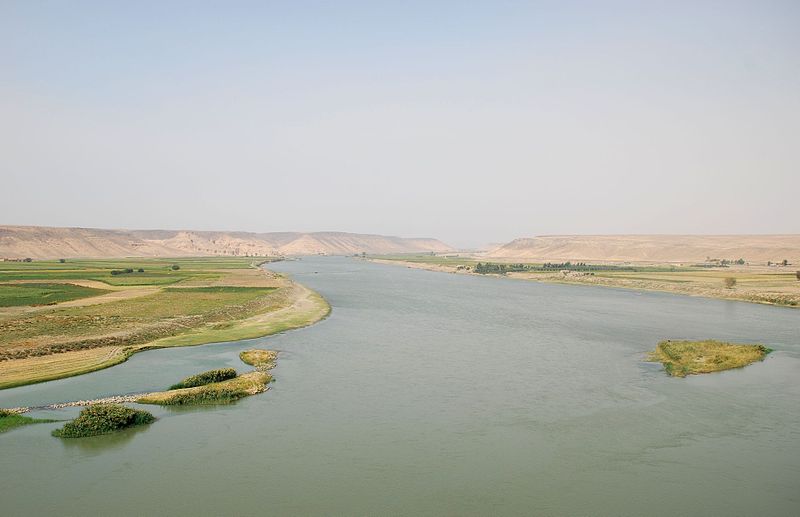3 Jan. God creates an earthly paradise
"Then the Lord God planted a garden in the east, in a place called Eden, and put the man he had formed into it."
"The Lord God caused every beautiful tree and every tree that was good for food to grow out of the ground. In the middle of the garden, God put the tree that gives life and also the tree that gives the knowledge of good and evil."
"A river flowed through Eden and watered the garden. From there the river branched out to become four rivers. The first river, named Pishon, flows around the whole land of Havilah, where there is gold... The second river, named Gihon, flows around the whole land of Cush. The third river, named Tigris, flows out of Assyria towards the east. The fourth river is the Euphrates."
"The Lord God put the man in the garden of Eden to care for it and work it. The Lord God commanded him, 'You may eat the fruit from any tree in the garden, but you must not eat the fruit from the tree which gives the knowledge of good and evil. It you ever eat fruit from that tree, you will die'! "
(Genesis 2:8-17)

The story of creation moves to the Garden of Eden, where God provided a suitable dwelling place for the man he had created. “Then the LORD God planted a garden in the east [that is, east of the Mediterranean world, where the account was written], in a place called Eden” (Genesis 2:8).
Some believe that the Biblical account of the ‘Garden of Eden’ is literally true; many others believe it is a symbolic description of the idyllic conditions and earthly ‘paradise’ that God intended for mankind from the beginning of time.
The location of the Garden of Eden is unclear. The Biblical account suggests that Eden lay in the uplands near the headwaters of the River Tigris and the River Euphrates (see Genesis 2:14). 'Eden', however, is the Sumerian word indicating a plain - a flat area where cultivation would be easy. In early Sumerian poetry (which pre-dates the Old Testament), the garden 'paradise' of Dilmun was located in the well-watered plain of Shinar where the two great rivers – the Tigris and the Euphrates – flowed into the Persian Gulf.
The ‘garden’ of Eden indicates a well-tended and enclosed area where food was available in abundance. The word 'paradise', in fact, derives from the ancient Persian word for a garden ('pairidaeza') - literally a 'walled garden'. ‘Eden’ also sounds like the Hebrew for ‘delight’ – it was a delightful place with plentiful fruit trees and abundant animal life.
Eden had plentiful surface water – in stark contrast to Palestine where Jewish readers of the ‘Tanakh’ (the Old Testament) relied on hauling water up from deep wells.
The names of the four headwaters flowing from Eden signify that God’s creation was considered to be at the centre of the known world in ancient times.
The 'Pishon' flowed through the "land of Havilah” (Genesis 2:11). Genesis 10:29-30 and 1 Samuel 15:7 indicate that Havilah was located in south west Arabia.
The 'Gihon' flowed through the "land of Cush” (Genesis 2:13). Cush was the name given to the area of north east Africa stretching from Ethiopia to northern Sudan (see Genesis 10:6).
The Tigris flowed “out of Assyria” (Genesis 2:14) (from its source in modern-day Turkey) to southern Mesopotamia.
The Euphrates flowed from eastern Anatolia (in modern-day Turkey) to southern Mesopotamia (in modern-day Iraq).
There is no actual geographical location with four rivers flowing out to all the places identified in Genesis. Rather, these symbolic names indicate that Eden was considered to be at the centre of the ancient world, with important rivers flowing on all sides of it.
The photo (by Bertramz) shows the River Euphrates at Zalabiyeh near Halabiyeh in Syria.
You can read more about the Garden of Eden @ https://www.thebiblejourney.org/biblejourney2/23-the-journeys-of-adam-enoch-noah-abraham/adams-journey-from-the-garden-of-eden/
